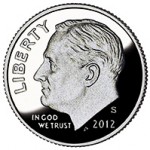 What is Bitcoin?
What is Bitcoin?
There’s been a lot of interest in Bitcoin lately. Is it real?
Bitcoin is a virtual encrypted currency, somewhat like foreign currency except there is no government backing its value. Its value (conversion rate) changes based on the demand for them. Right now, there are a lot of speculators driving up the price. But that could change.
Bitcoin was started as virtual money for techies to barter services — essentially an exchange of one person’s labor or computer access for another’s, where neither person had to have cash. It’s a lot like the barter system of generations ago, where one person swapped eggs for another person’s vegetables.
Wired magazine wrote a good detailed explanation of Bitcoin.

You can buy and sell Bitcoin at online exchanges, and even use it for payment at a few online sites.There are only 21 million Bitcoins, so as they become popular their value goes up. As they lose popularity their value goes down.
There are a few problems with Bitcoin:
- there is no intrinsic value, so they could become totally worthless
- as speculators bid up prices, they suffer from rapid inflation; it’s hard to price your services or goods in Bitcoin if their value changes rapidly
- the US government might decide they are a security (like a stock), not a currency, so it needs to be regulated by the SEC, making them much harder to use
- they were used for payment of illegal drugs at the Silk Road web site that was shut down by the FBI, so any use might attract the attention of law enforcement
- if you lose the private password to your Bitcoin, it is gone
Some people like the idea of Bitcoin precisely because it is not controlled by any government, and it eliminates intermediaries who often charge fees (credit card companies, banks). Bitcoin can be exchanged directly from person to person. And, there are people who dislike the Federal Reserve’s control of the US dollar.
Don’t think you can avoid taxes by using Bitcoin; the IRS has a form to report barter transactions: the 1099-B.
At best, Bitcoin is an interesting thought-experiment about the future of money. But at the moment it’s enjoying the over-hyped status of speculation; that’s not good for stocks or currency.
